
Luchino Visconti di Modrone, Count of Lonate Pozzolo was an Italian filmmaker, theatre and opera director, and screenwriter. He was one of the fathers of cinematic neorealism, but later moved towards luxurious, sweeping epics dealing with themes of beauty, decadence, death, and European history, especially the decay of the nobility and the bourgeoisie. Critic Jonathan Jones wrote that “no one did as much to shape Italian cinema as Luchino Visconti.”
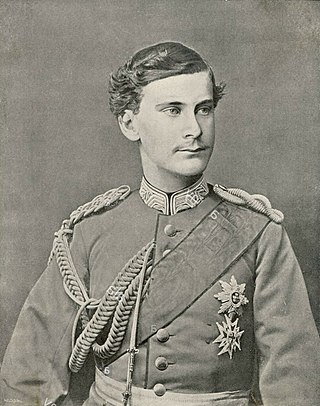
Otto was King of Bavaria from 1886 until 1913. However, he never actively ruled because of alleged severe mental illness. His uncle, Luitpold, and his cousin, Ludwig, served as regents. Ludwig deposed him in 1913, a day after the legislature passed a law allowing him to do so, and became king in his own right as Ludwig III.

Neuschwanstein Castle is a 19th-century historicist palace on a rugged hill of the foothills of the Alps in the very south of Germany, just north of Austria. It is located in the Swabia region of Bavaria, in the municipality of Schwangau, above the incorporated village of Hohenschwangau, which is also the location of Hohenschwangau Castle. The closest larger town is Füssen. The castle stands above the narrow gorge of the Pöllat stream, east of the Alpsee and Schwansee lakes, close to the mouth of the Lech into Forggensee.

Chlodwig Carl Viktor, Prince of Hohenlohe-Schillingsfürst, Prince of Ratibor and Corvey, usually referred to as the Prince of Hohenlohe, was a German statesman, who served as the chancellor of the German Empire and minister-president of Prussia from 1894 to 1900. Prior to his appointment as Chancellor, he had served in a number of other positions, including as minister-president of Bavaria (1866–1870), German Ambassador to Paris (1873–1880), Foreign Secretary (1880) and Imperial Lieutenant of Alsace-Lorraine (1885–1894). He was regarded as one of the most prominent liberal politicians of his time in Germany.
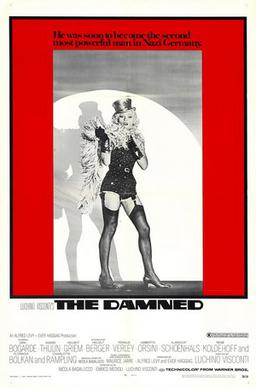
The Damned (Götterdämmerung) is a 1969 historical-drama film directed and co-written by Luchino Visconti, and starring Dirk Bogarde, Ingrid Thulin, Helmut Berger, Helmut Griem, Umberto Orsini, Charlotte Rampling, Florinda Bolkan, Reinhard Kolldehoff and Albrecht Schönhals in his final film. Set in 1930s Germany, the film centers on the Essenbecks, a wealthy industrialist family who have begun doing business with the Nazi Party, and whose amoral and unstable heir, Martin, is embroiled in his family's machinations. It is loosely based on the Krupp family of steel industrialists from Essen.

Linderhof Palace is a schloss in Germany, in southwest Bavaria near the village of Ettal. It is the smallest of the three palaces built by King Ludwig II of Bavaria and the only one which was actually completed and that he lived in most of the time from 1876.

Helmut Berger was an Austrian actor, known for his portrayal of narcissistic and sexually ambiguous characters. He was one of the stars of European cinema in the late 1960s and 1970s, and is regarded as a sex symbol and pop icon of that period.

Ludwig II: Longing for Paradise is a German musical in five acts with music by Franz Hummel and book and lyrics by Stephan Barbarino and Heinz Hauser.

Sissi is a 1955 Austrian film directed by Ernst Marischka and starring Romy Schneider, Karlheinz Böhm, Magda Schneider, Uta Franz, Gustav Knuth, Vilma Degischer and Josef Meinrad. Sissi is the first installment in the trilogy of films about Empress Elisabeth of Austria, who was known to her family as "Sisi". It was followed by The Young Empress and Fateful Years of an Empress.

Sissi – Fateful Years of an Empress is a 1957 Austrian film directed by Ernst Marischka and starring Romy Schneider, Karlheinz Böhm, Magda Schneider, Gustav Knuth and Josef Meinrad, costumes by Gerdago. It was entered into the 1958 Cannes Film Festival.

Prince Karl Theodor Maximilian August of Bavaria ; and grand prior of the order of Malta, was a German soldier.

Karl-Theodor, Duke in Bavaria, was a member of the House of Wittelsbach and a professional oculist. He was the favorite brother of the Empress Elisabeth of Austria, and father of Queen Elisabeth of the Belgians.
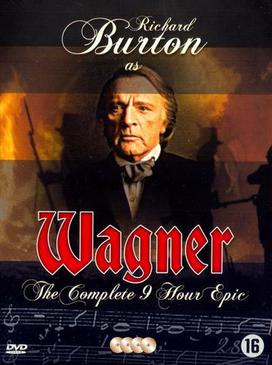
Wagner is a 1983 television miniseries on the life of Richard Wagner with Richard Burton in the title role. It was directed by Tony Palmer and written by Charles Wood. The film was later released on DVD as a ten-part miniseries.
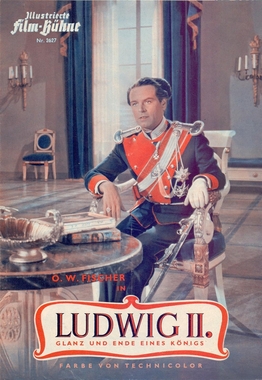
Ludwig II is a 1955 West German historical drama film directed by Helmut Käutner and starring O.W. Fischer, Ruth Leuwerik and Marianne Koch. It is based on the life of the nineteenth century ruler Ludwig II of Bavaria. It was entered into the 1955 Cannes Film Festival. The film was shot in technicolor at the Bavaria Studios in Munich with sets designed by the art director Hein Heckroth and Fritz Lück. Location shooting took place at the historic residences of Ludwig II Herrenchiemsee, Neuschwanstein Castle and Hohenschwangau Castle.
Ludwig II (1845–1886) was King of Bavaria from 1864 to 1886.

Ludwig II, also called the Swan King or the Fairy Tale King, was King of Bavaria from 1864 until his death in 1886. He also held the titles of Count Palatine of the Rhine, Duke of Bavaria, Duke of Franconia, and Duke in Swabia. Outside Germany, he is at times called "the Mad King" or "Mad King Ludwig".
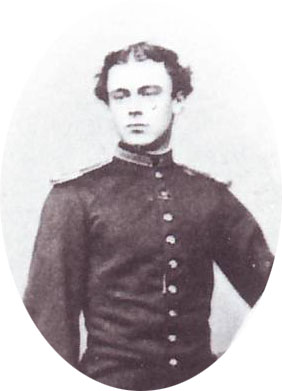
Paul Maximilian Lamoral, Prince of Thurn and Taxis, was the third child of Maximilian Karl, 6th Prince of Thurn and Taxis and his second wife Princess Mathilde Sophie of Oettingen-Oettingen and Oettingen-Spielberg. He was buried in Cannes, at the Cimetière du Grand Jas, Allée du Silence no. 33 under the name of Paul de Fels.
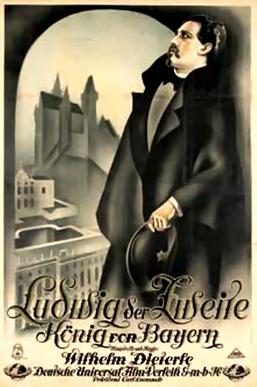
Ludwig II, King of Bavaria is a 1929 German silent historical film directed by William Dieterle and starring Dieterle, Theodor Loos and Eugen Burg. It portrays the life and reign of the monarch Ludwig II who ruled Bavaria from 1864 to 1886. It was made at the Bavaria Studios in Geiselgasteig, Munich. The production company was the German subsidiary of the American studio Universal Pictures.
Ludwig: Requiem for a Virgin King is a 1972 West German historical drama film directed by Hans-Jürgen Syberberg, starring Harry Baer as Ludwig II of Bavaria. The film was shot on a soundstage with rear-projected scenography and an intentionally artificial style.

Ludwig II is a 2012 German-Austrian historical film directed by Peter Sehr and Marie Noëlle, starring Sabin Tambrea as the younger Bavarian King Ludwig II and Sebastian Schipper as the king in his later years.


















